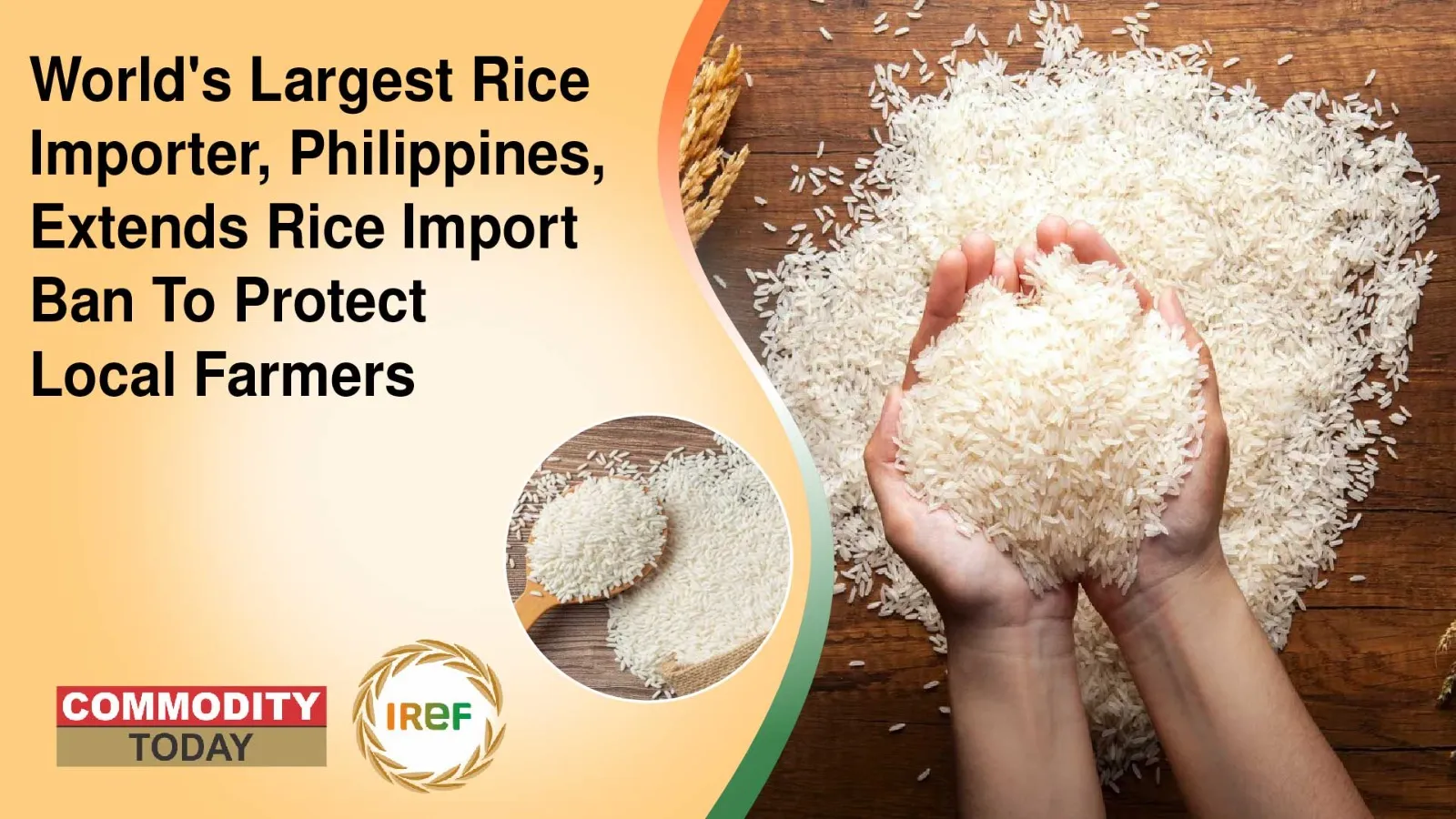World’s Largest Rice Importer, Philippines, Extends Rice Import Ban To Protect Local Farmers

World’s largest rice importer, the Philippines, has recently extended the rice import ban until April next year to safeguard the local farmers. A move that can further pressurize global prices and reduce competition from foreign rice during the domestic harvest time. Experts say that the Philippines' decision to prolong the rice import ban will create a bearish impact on international prices. On Monday, October 6, the Philippines' Agriculture Minister Francisco Tiu Laurel Jr. told Parliament that the country will allow rice imports for only one month in January. During this period, the Philippines will have to import approximately 300,000 tons of rice from abroad. Originally, this import ban was implemented for only 60 days from September 1, but it has now been extended until April.
Extending Rice import ban to encourage domestic production
The government stated that this decision has been taken to ensure fair prices for farmers and encourage domestic production. However, we take a look at the saying of International experts, a prolonged absence of the World’s largest rice importer, like the Philippines, will decrease global demand, potentially pushing prices further down.
Philippines' purchases already exceed needs
The Philippines had imported 3.5 million tons of rice by the end of September 2025, about 0.8 million tons more than needed. According to the US Department of Agriculture (USDA), the Philippines will purchase up to 5 million tons of rice in the 2025–26 season, putting it ahead of other major importers such as China.